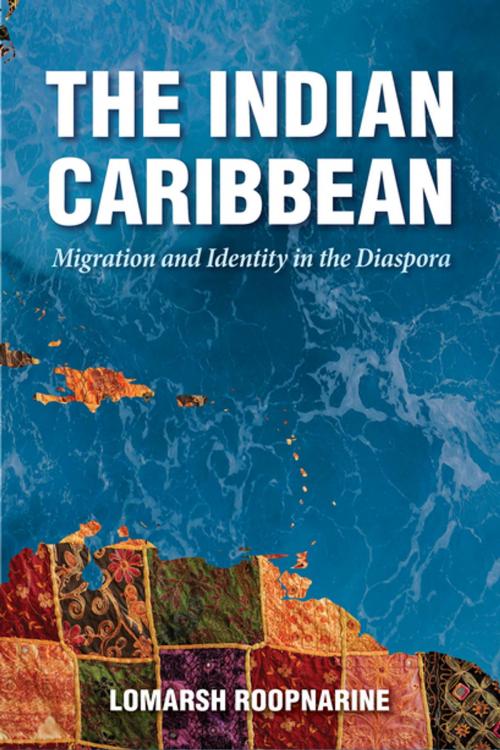The Indian Caribbean
Migration and Identity in the Diaspora
Nonfiction, History, Americas, Caribbean & West Indies, Social & Cultural Studies, Social Science, Cultural Studies, Emigration & Immigration, Ethnic Studies| Author: | Lomarsh Roopnarine | ISBN: | 9781496814395 |
| Publisher: | University Press of Mississippi | Publication: | January 19, 2018 |
| Imprint: | University Press of Mississippi | Language: | English |
| Author: | Lomarsh Roopnarine |
| ISBN: | 9781496814395 |
| Publisher: | University Press of Mississippi |
| Publication: | January 19, 2018 |
| Imprint: | University Press of Mississippi |
| Language: | English |
Winner of the 2018 Gordon K. and Sybil Farrell Lewis Award for the best book in Caribbean studies from the Caribbean Studies Association
This book tells a distinct story of Indians in the Caribbean--one concentrated not only on archival records and institutions, but also on the voices of the people and the ways in which they define themselves and the world around them. Through oral history and ethnography, Lomarsh Roopnarine explores previously marginalized Indians in the Caribbean and their distinct social dynamics and histories, including the French Caribbean and other islands with smaller South Asian populations. He pursues a comparative approach with inclusive themes that cut across the Caribbean.
In 1833, the abolition of slavery in the British Empire led to the import of exploited South Asian indentured workers in the Caribbean. Today India bears little relevance to most of these Caribbean Indians. Yet, Caribbean Indians have developed an in-between status, shaped by South Asian customs such as religion, music, folklore, migration, new identities, and Bollywood films. They do not seem akin to Indians in India, nor are they like Caribbean Creoles, or mixed-race Caribbeans. Instead, they have merged India and the Caribbean to produce a distinct, dynamic local entity.
The book does not neglect the arrival of nonindentured Indians in the Caribbean since the early 1900s. These people came to the Caribbean without an indentured contract or after indentured emancipation but have formed significant communities in Barbados, the US Virgin Islands, and Jamaica. Drawing upon over twenty-five years of research in the Caribbean and North America, Roopnarine contributes a thorough analysis of the Indo-Caribbean, among the first to look at the entire Indian diaspora across the Caribbean.
Winner of the 2018 Gordon K. and Sybil Farrell Lewis Award for the best book in Caribbean studies from the Caribbean Studies Association
This book tells a distinct story of Indians in the Caribbean--one concentrated not only on archival records and institutions, but also on the voices of the people and the ways in which they define themselves and the world around them. Through oral history and ethnography, Lomarsh Roopnarine explores previously marginalized Indians in the Caribbean and their distinct social dynamics and histories, including the French Caribbean and other islands with smaller South Asian populations. He pursues a comparative approach with inclusive themes that cut across the Caribbean.
In 1833, the abolition of slavery in the British Empire led to the import of exploited South Asian indentured workers in the Caribbean. Today India bears little relevance to most of these Caribbean Indians. Yet, Caribbean Indians have developed an in-between status, shaped by South Asian customs such as religion, music, folklore, migration, new identities, and Bollywood films. They do not seem akin to Indians in India, nor are they like Caribbean Creoles, or mixed-race Caribbeans. Instead, they have merged India and the Caribbean to produce a distinct, dynamic local entity.
The book does not neglect the arrival of nonindentured Indians in the Caribbean since the early 1900s. These people came to the Caribbean without an indentured contract or after indentured emancipation but have formed significant communities in Barbados, the US Virgin Islands, and Jamaica. Drawing upon over twenty-five years of research in the Caribbean and North America, Roopnarine contributes a thorough analysis of the Indo-Caribbean, among the first to look at the entire Indian diaspora across the Caribbean.















